Sure, every smartphone today features multiple calendar applications: one glance at the screen will conveniently tell you the current date, day of the week, and month. However, the display on a mechanical wristwatch is much more sophisticated than these computer-generated depictions.
This was exactly the thought of the technicians at Patek Philippe some 25 years ago, long before we had telephone screens in our pockets. In the wake of rekindled interest in sophisticated luxury wristwatches, the time-honored Genevan manufacture developed a new generation of so-called “useful” complications suitable for everyday wear in the 1990s. Naturally, these became instant successes.
Perhaps the most celebrated among these is the annual calendar, which Patek Philippe introduced and patented in 1996. Its mechanism is not quite as predictive as the one driving the perpetual calendar, which keeps perfect track of all indications up to the year 2100, yet it reliably indicates the date throughout the year with the exception of the last day of February (and generally costs a lot less).
This makes the annual calendar much more practical than a standard (complete) calendar, which needs correction at the end of all months with 30 days or less – and most especially on March 1. The annual calendar, on the other hand, only needs correcting once a year at this time. For owners of this noble yet practical complication, making this adjustment marks a yearly highlight.
In celebration of the annual calendar, here are three exciting new models to kick off 2022 in style.
Patek Philippe Flyback Chronograph with Annual Calendar: three’s a charm
Being able to effortlessly combine mechanical complexity with a sophisticated design that is as simple as it is functional is a key reason for Patek Philippe’s undisputed reputation as a leader in the world of haute horlogerie. Among the most recent examples of this know-how is the Automatic Flyback Chronograph with Annual Calendar in stainless steel that has been available since last fall alongside the editions in platinum with a blue dial and pink gold with a brown dial, which were respectively introduced in 2015 and 2019.
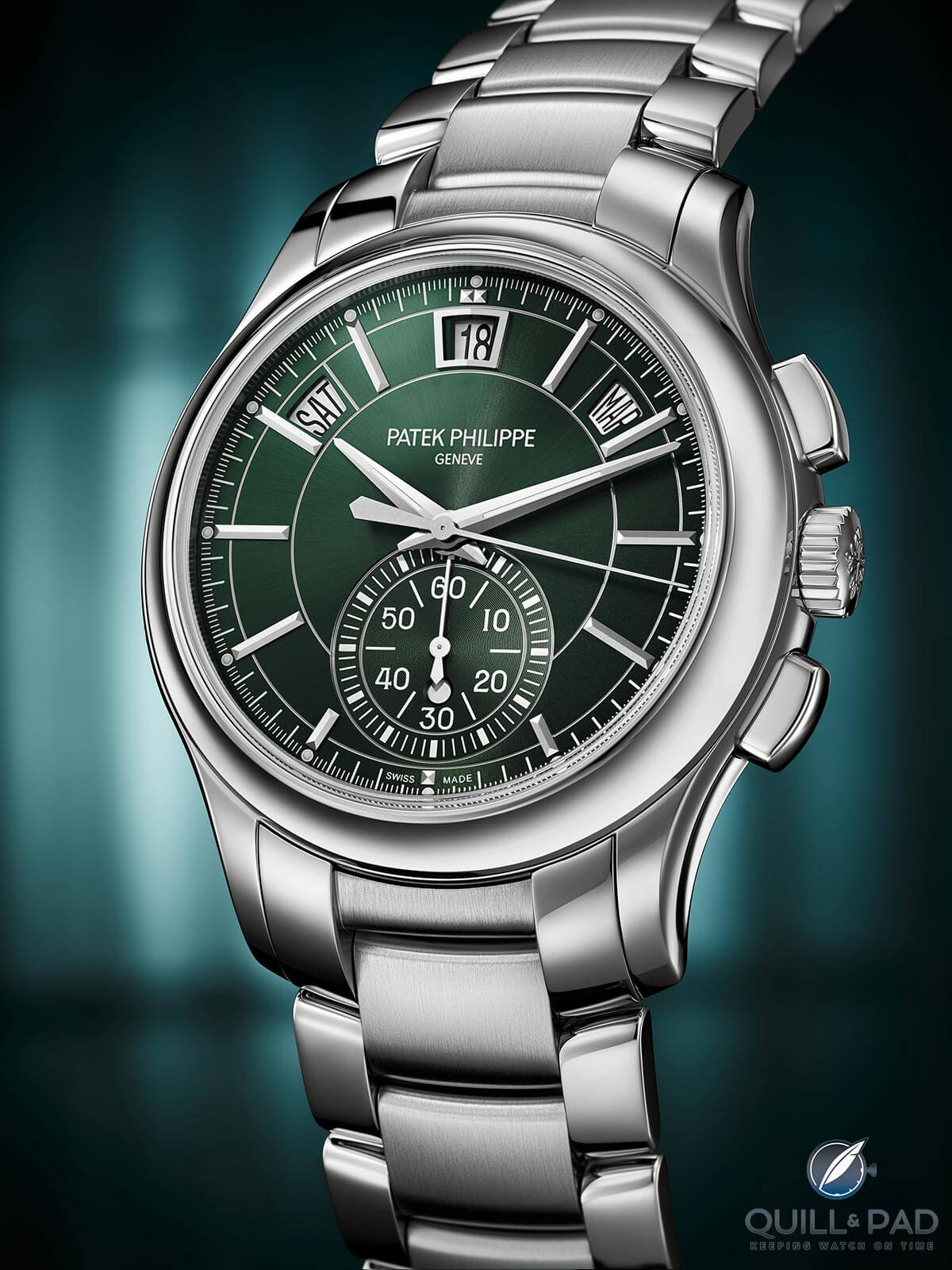
Patek Philippe Flyback Chronograph with Annual Calendar
Like the previous models, the trendy, sunray-brushed, olive-green dial of the new stainless steel variation stands out with its well-designed arrangement of indications that include the weekday, date, and month in three separate windows in the upper part of the dial. The lower part is occupied by a prominent subdial containing the 60-minute chronograph counter and day/night indicator (small dot above the “30”).
Tried-and-tested Caliber CH 28-520 QA 24H outfitted with column wheel and vertical clutch allows the chronograph hand to be used as a central sweep second hand. While this is not the brand’s most complicated movement, the sheer number of components – 402 – is proof of its technical complexity.
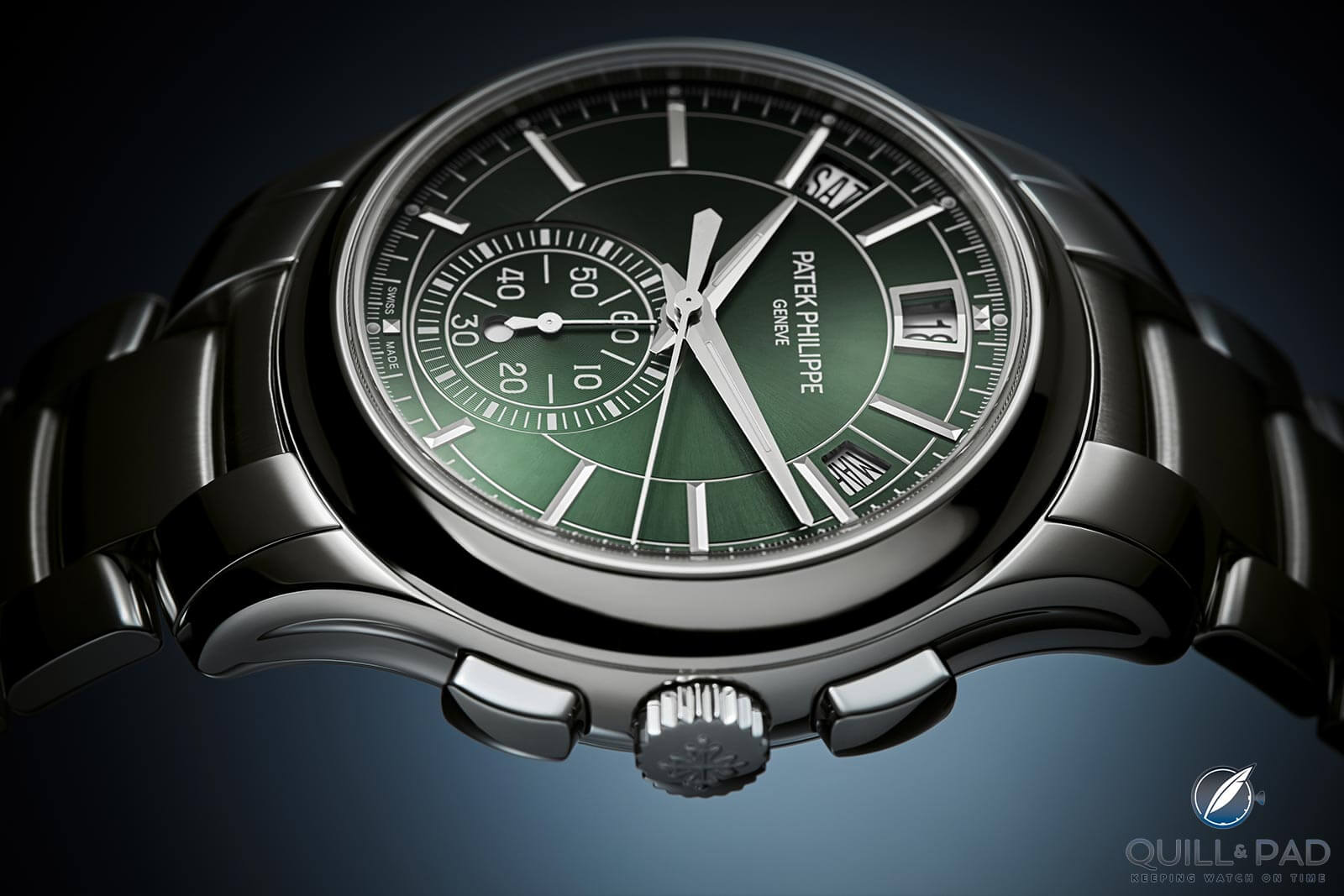
Patek Philippe Flyback Chronograph with Annual Calendar
As usual for Patek Philippe, it remains svelte: the movement’s height reaches just 7.68 mm, including the module for the annual calendar and a central oscillating weight in 21-karat gold.
For more information, please visit www.patek.com/en/collection/complications/5905-1A.
Quick Facts Patek Philippe Self-Winding Flyback Chronograph with Annual Calendar
Case: 42 x 14.13 mm, stainless steel
Movement: automatic Caliber CH 28-520 QA 24H; 4 Hz/28,800 vph frequency; max. power reserve of 55 hours, Patek Philippe Seal
Functions: hours, minutes, seconds; flyback chronograph, annual calendar with day, date, month, and day/night indication
Price: $59,140
Parmigiani Fleurier Tonda PF Annual Calendar: refined and sporty
On the occasion of its 25th anniversary, Parmigiani Fleurier, the high-end Swiss luxury manufacture founded by ingenious master watchmaker and restorer Michel Parmigiani, launched an entirely new collection during Geneva Watch Days.
Those familiar with the creations of Parmigiani Fleurier understand that these are top-class manufacture timepieces blending outstanding craftsmanship and cutting-edge engineering. Running the gamut from the stunningly clean and expressive Tonda PF Micro-Rotor, a two-hand timepiece with date, to a complex and rare split-seconds chronograph, the sporty-elegant new collection with integrated bracelet also includes an annual calendar model available in pink gold and stainless steel.
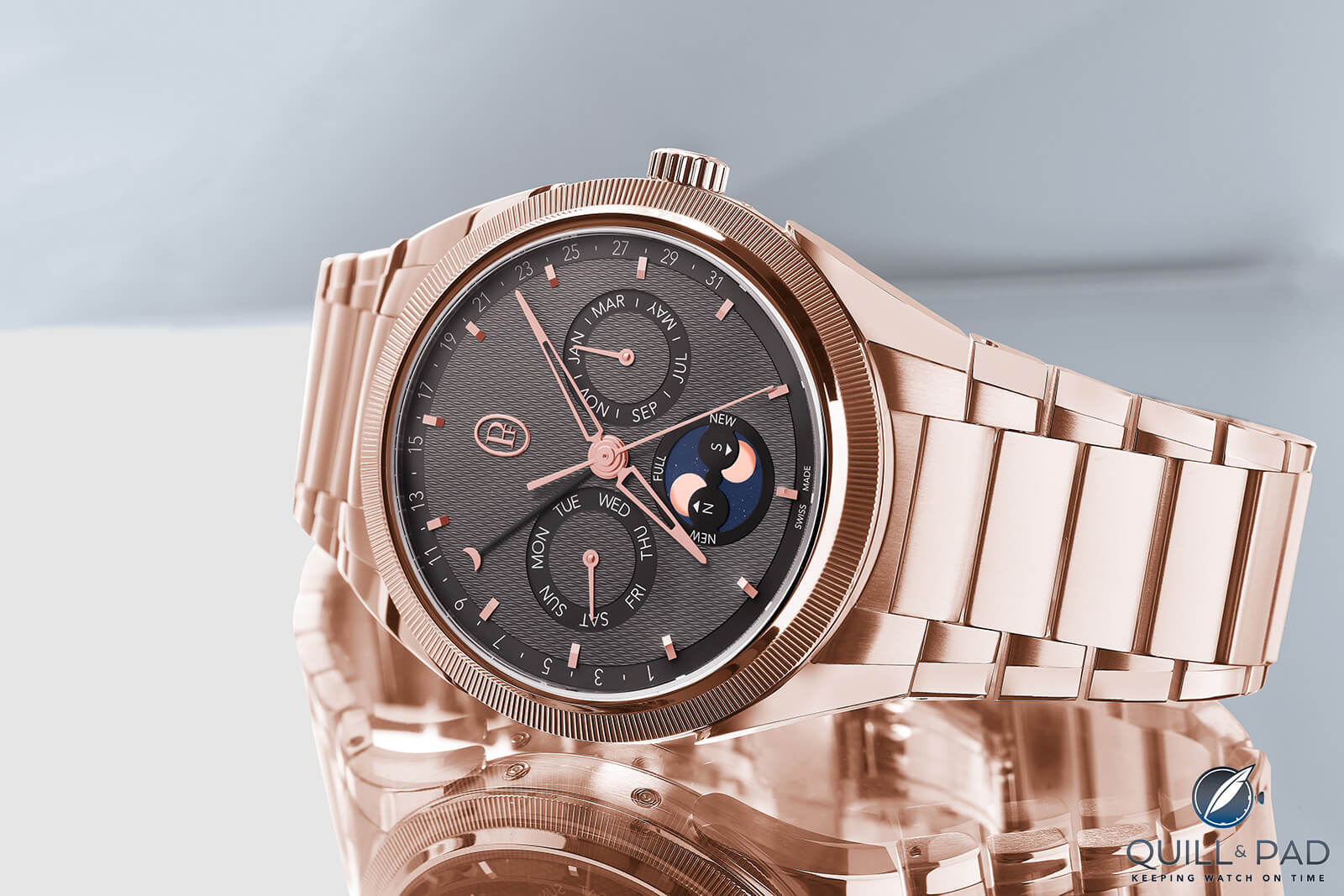
Parmigiani Fleurier Tonda PF Annual Calendar in pink gold
It is hard to say which side of the Tonda PF Annual Calendar is more gorgeous: the view of and into the automatic movement comprising 359 parts and offering a refined finishing quality, including a skeletonized rotor to allow for an unobstructed view, or the dial with its superb handcrafted barleycorn guilloche.
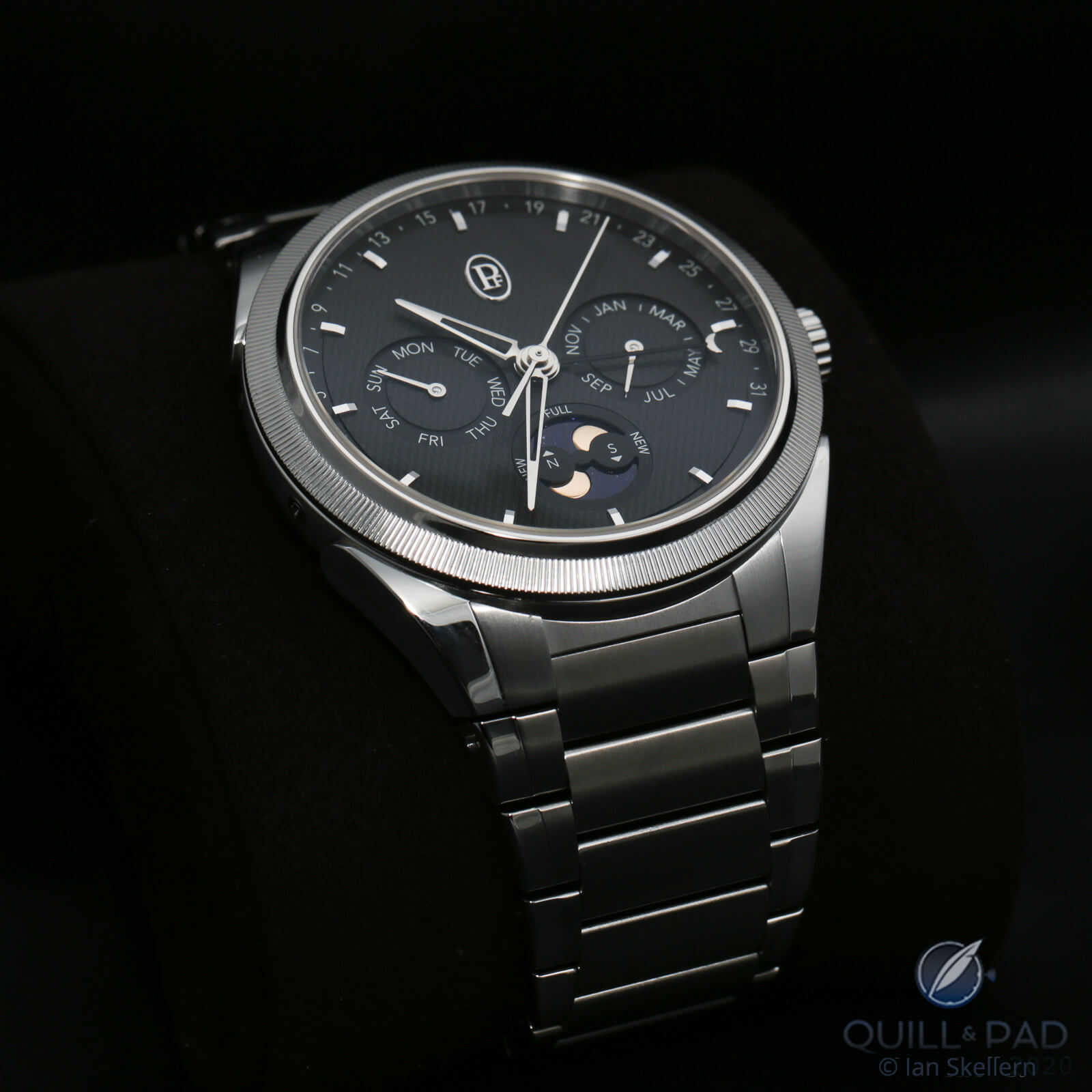
Parmigiani Fleurier Tonda PF Annual Calendar in steel
Created in the time-honored traditions of the village of Fleurier by a rose engine lathe, the dial pattern with hundreds of tiny barley grain-like elements serves as a breathtaking background for the retrograde date, day and month in subdials, and moon phases in both hemispheres, an indication accurate for 122 years.
For more information, please visit www.parmigiani.com/en/watches/tonda-pf.
Quick Facts Tonda PF Annual Calendar
Case: 42 x 11.1 mm, stainless steel with platinum bezel or pink gold
Movement: automatic Caliber PF339, 4 Hz/28,800 vph frequency, 50-hour power reserve
Functions: hours, minutes, small seconds; annual calendar with retrograde date, day, and month; high-precision moon phase for both hemispheres that only needs adjusting every 122 years
Price: CHF 35,000/$38,700 (stainless steel); CHF 70,000/$77,500 (pink gold)
Omega Globemaster Co-Axial Master Chronometer: a modern classic with a twist
The world of high-end watches is full of curious things and funny terms. There are lollipop and snowflake hands, Pepsi bezels, oysters, tunas, turtles, and sandwich dials. While these don’t mean much to most people, they often enthrall connoisseurs of vintage watches.
Aficionados know the meaning of these nicknames and that they are derived from some significant characteristics that became famous at one point in history. At watch auctions today, such richly named elements often conceal valuable classic watches. This is also certainly at least part of the reason why many watch brands – among them Rolex, Panerai, Seiko, and Tudor – regularly breathe new life into their signature stylistic features by issuing re-editions and remakes, reviving something of the original charisma and updating them to modern standards.
Interestingly, another one of these terms is inspired by a kitchen staple: the pie-pan dial of Omega’s Constellation collection, which was all the rage when it debuted in the 1950s. These timepieces were not only distinguished by a high level of precision earning them observatory chronometer awards, but also by their dials’ refined architecture reminiscent of the shape. If you look closely, you will recognize this shape: the dial appears as if it had been “baked” in a tiny pie pan.
In 2015, Omega launched the Globemaster collection, which initially comprised three-handed timepieces whose look and feel was inspired by vintage Constellation models – including the pie-pan dial with its slightly recessed periphery. A fluted bezel added to the sophisticated dress watch-like aura of this automatic timepiece.
However, it was not only the appearance of this watch that took historical cues from its predecessors: most notably, the Globemaster was equipped with the groundbreaking Master Chronometer-certified Caliber 8900, introducing a new quality standard for accuracy defined in partnership with the Swiss METAS institute. This new standard and certificate resonated like a drumroll in the world of watches and marked the beginning of a new generation of high-precision, antimagnetic Omega calibers.
In 2016, an annual calendar was added to the collection. A smart choice because the shape of the dial in conjunction with 12 bold hour markers serve as a perfect background for the 12 months to be added between the hour markers. The ornate cursive font that Omega chose has not been everyone’s cup of tea, though. Personally, I like it because it is quite unique and highlights the expressive, vintage aura of the timepiece.
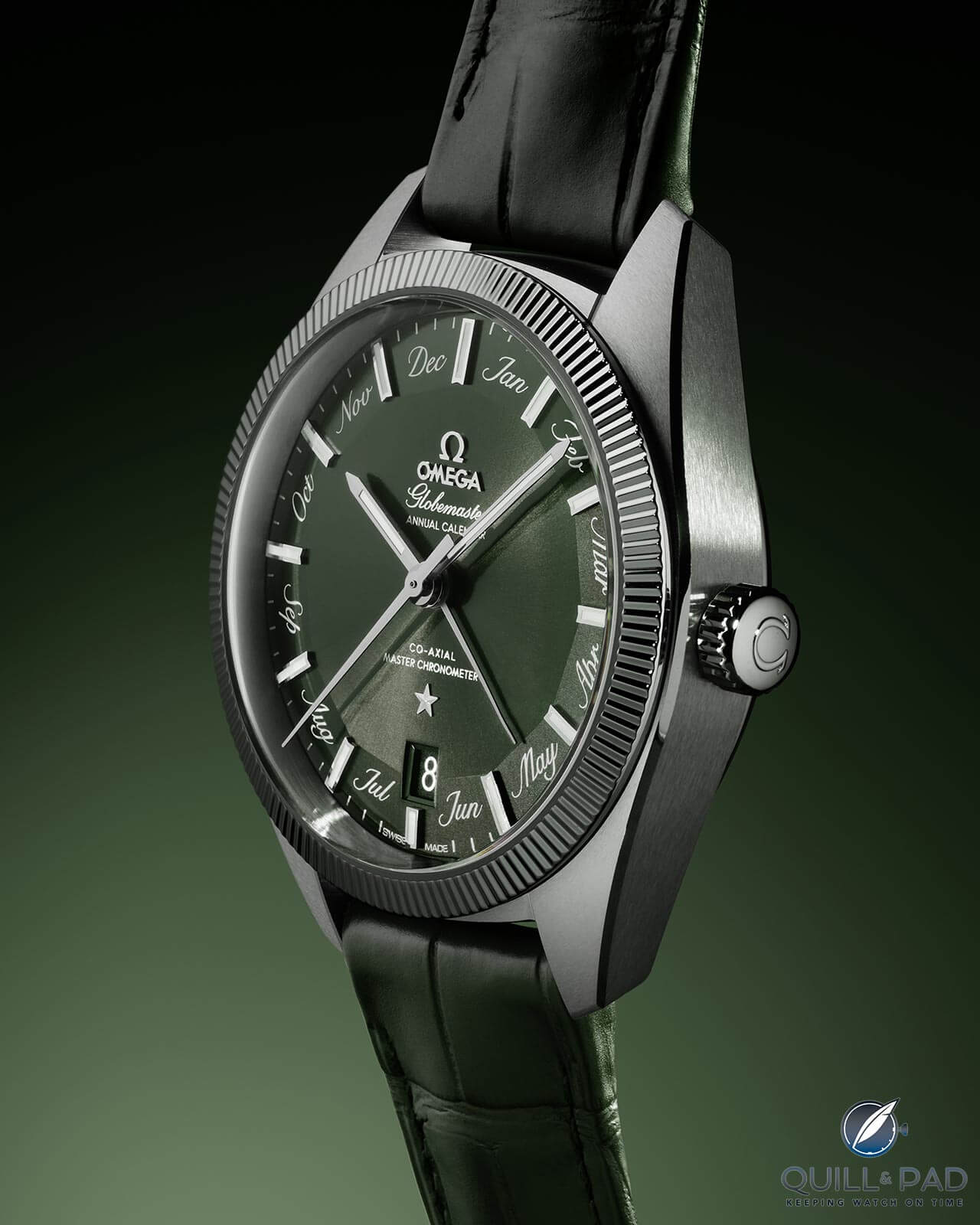
Omega Globemaster Co-Axial Master Chronometer
Late in 2021, Omega updated the collection with three new executions that offer a twist on color and materials. The first one combines stainless steel with a sunray-brushed green dial. This variant features a resilient tungsten carbide bezel.
The second timepiece is two tone, wedding stainless steel for the case to Omega’s Sedna gold for the bezel; it features a sunray-brushed burgundy dial.
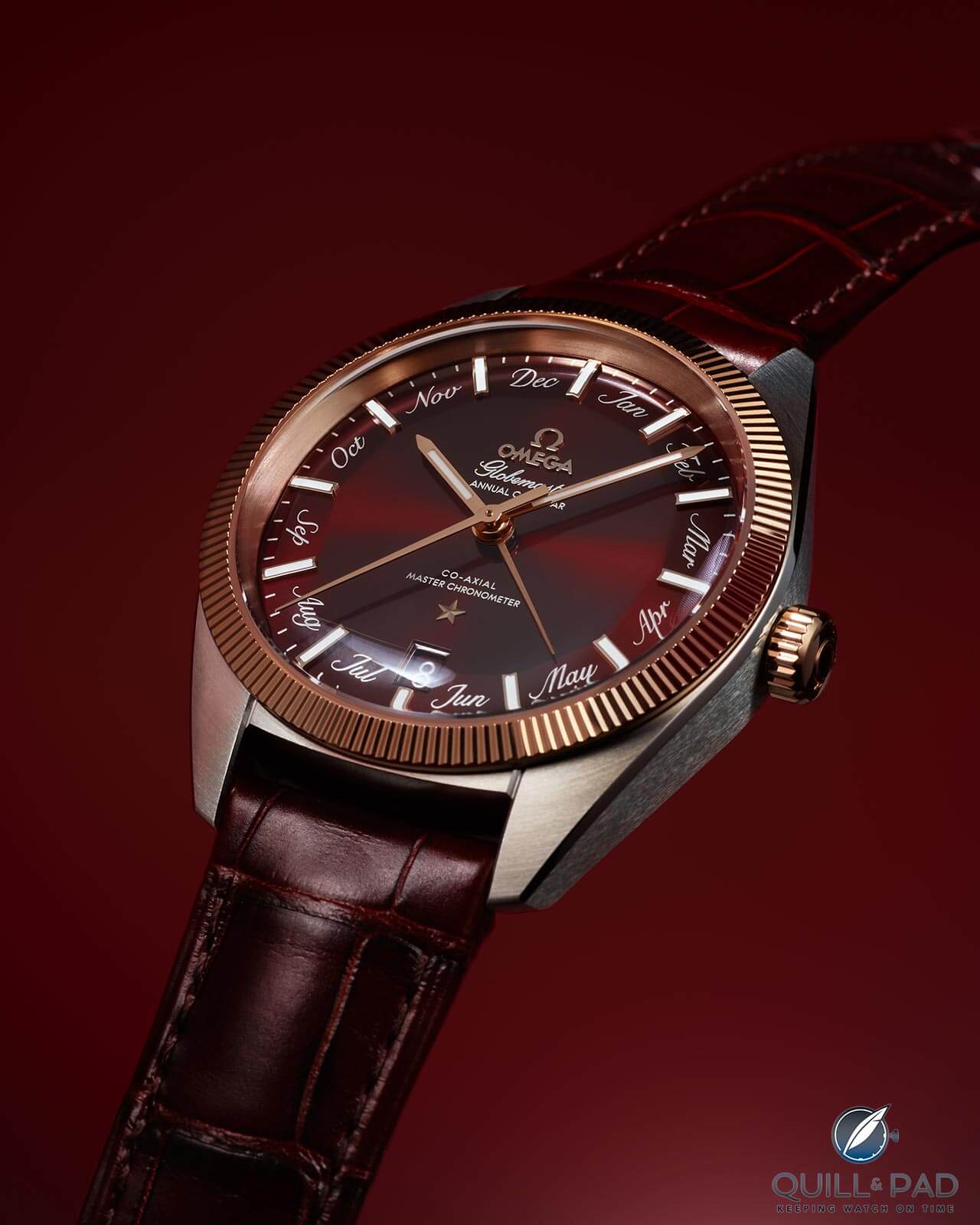
Omega Globemaster Co-Axial Master Chronometer in two tone stainless steel and Sedna gold
The third, and most precious, model is entirely clad in Sedna gold, including the dial.
All three are powered by Omega Caliber 8922, which sports two mainspring barrels for a comfortable power reserve of 55 hours. It also bears the Master Chronometer certificate.
De rigueur for an elegant Swiss timepiece, the finely decorated movement with the brand’s signature Arabesque ribbing can be admired through a sapphire crystal case back. As a reference to Omega’s chronometer precision awards of the twentieth century, its center bears an engraving of the Neuchâtel observatory.
Quick Facts Omega Globemaster Co-Axial Master Chronometer
Case: 41 x 14.5 mm, stainless steel
Movement: automatic Co-Axial Caliber 8922, 25,200 vph frequency, 55-hour power reserve, Master Chronometer certificate, free-sprung balance with silicon balance spring
Functions: hours, minutes, seconds; annual calendar with date and month
Price: $8,600 (stainless steel); $11,400 (stainless steel and Sedna gold); $31,000 (Sedna gold)
For more information, please visit www.omegawatches.com/en-us/watches/constellation/globemaster/annual-calendar-collection.
You may also enjoy:
Annual Calendars Are Goldilocks Complications: Not Too Hot, Not Too Cold, Just Right
All-New Parmigiani Tonda PF Collection: Elegant Simplicity, Even When Complicated







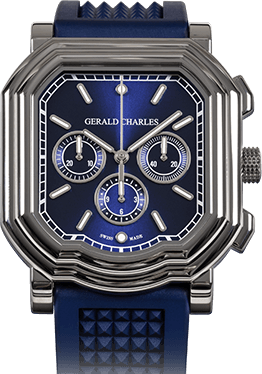
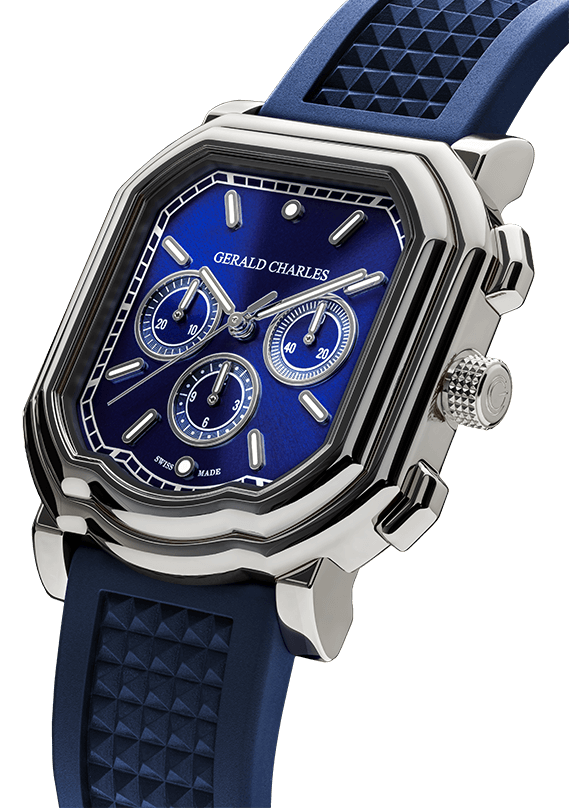

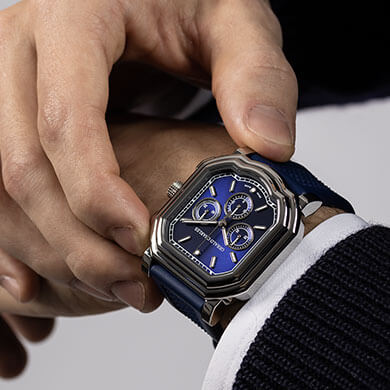
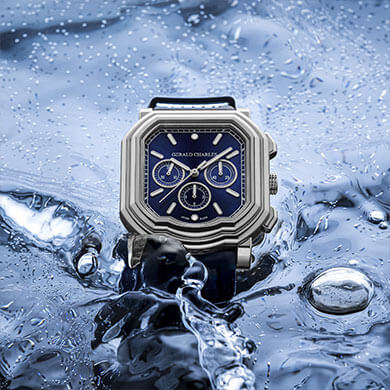

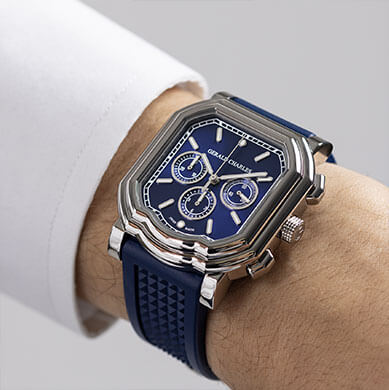



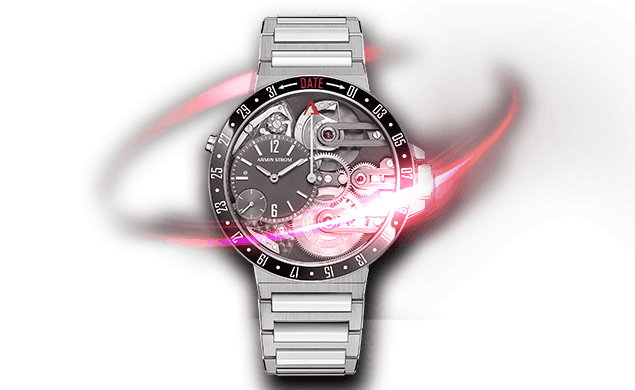
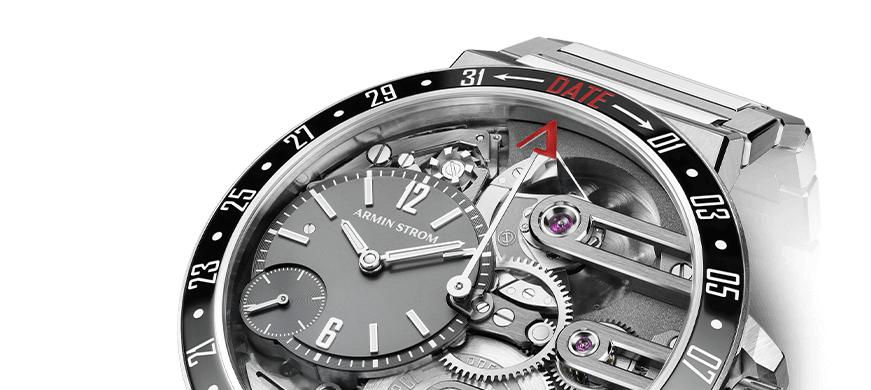
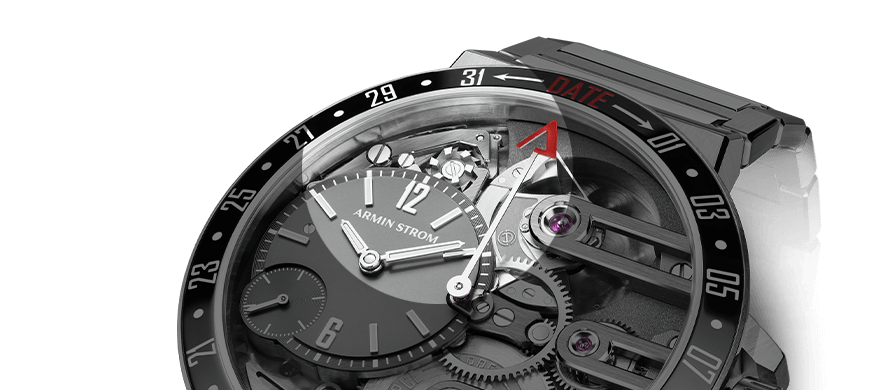


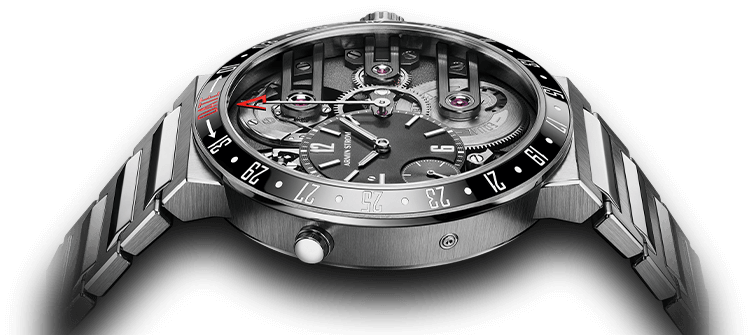
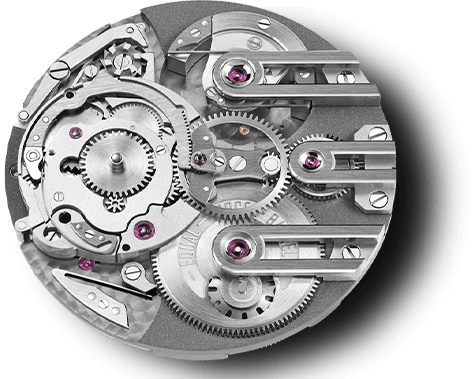

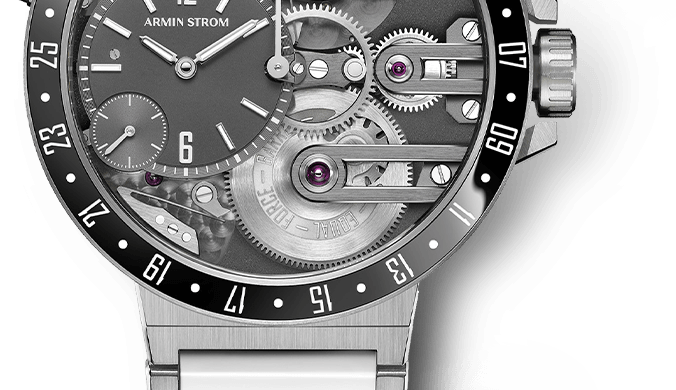
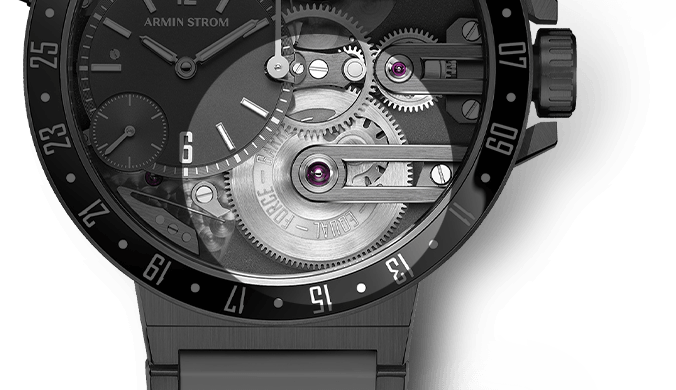


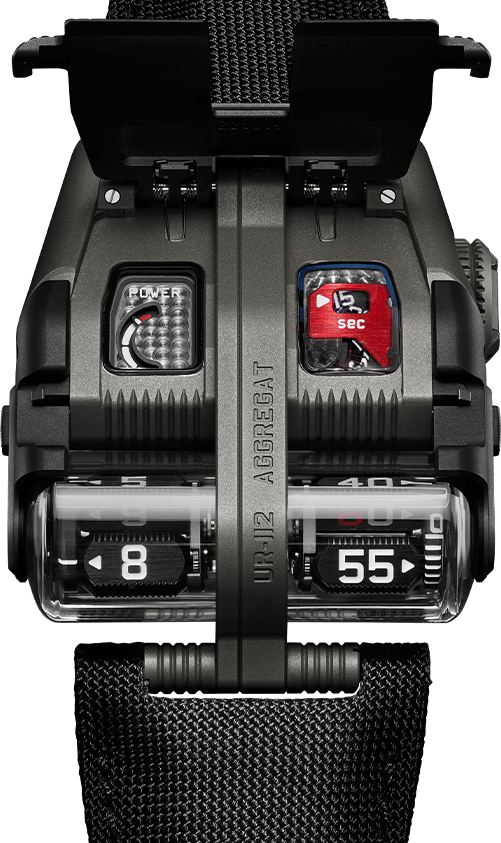

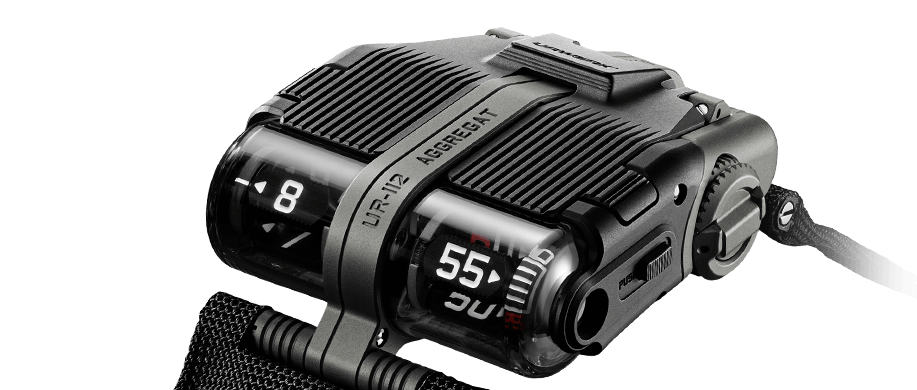
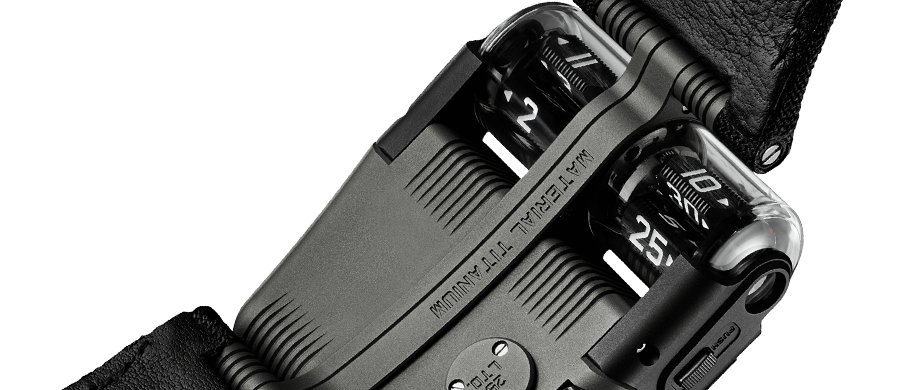
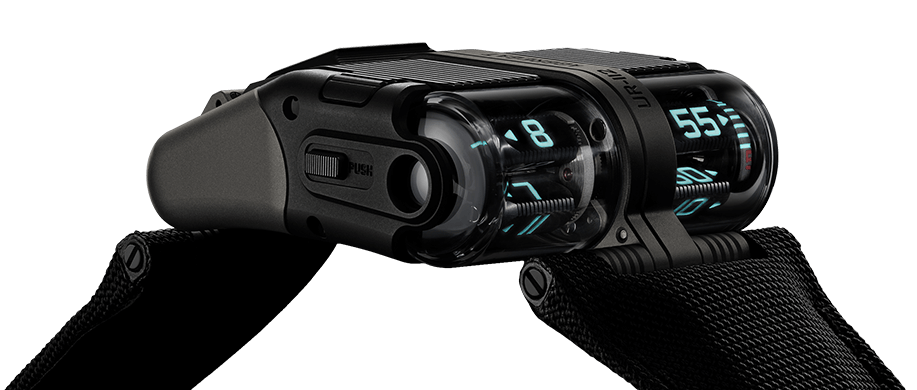


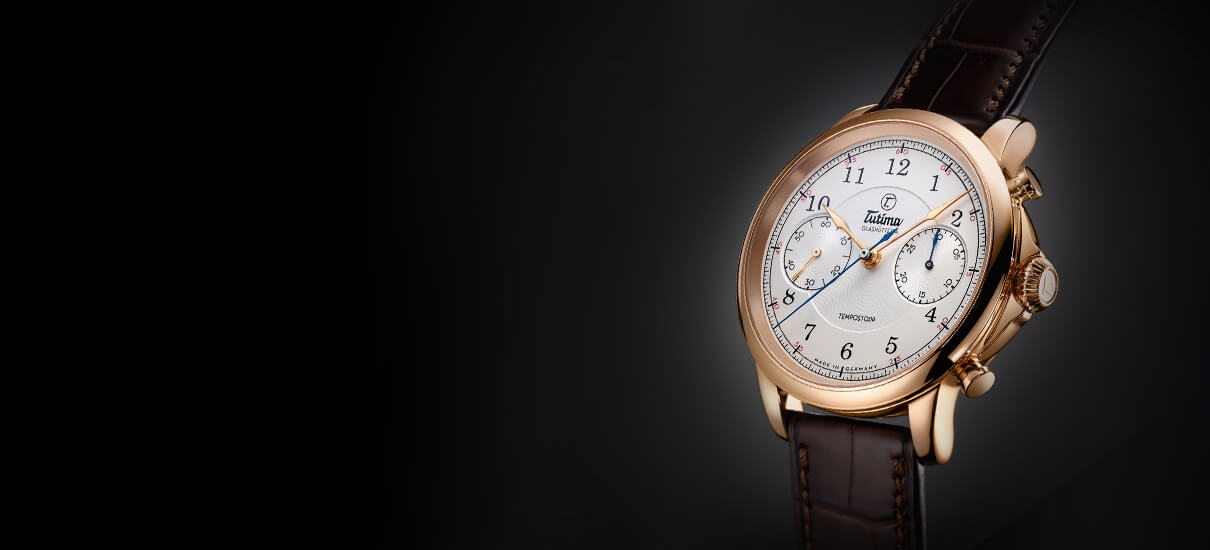

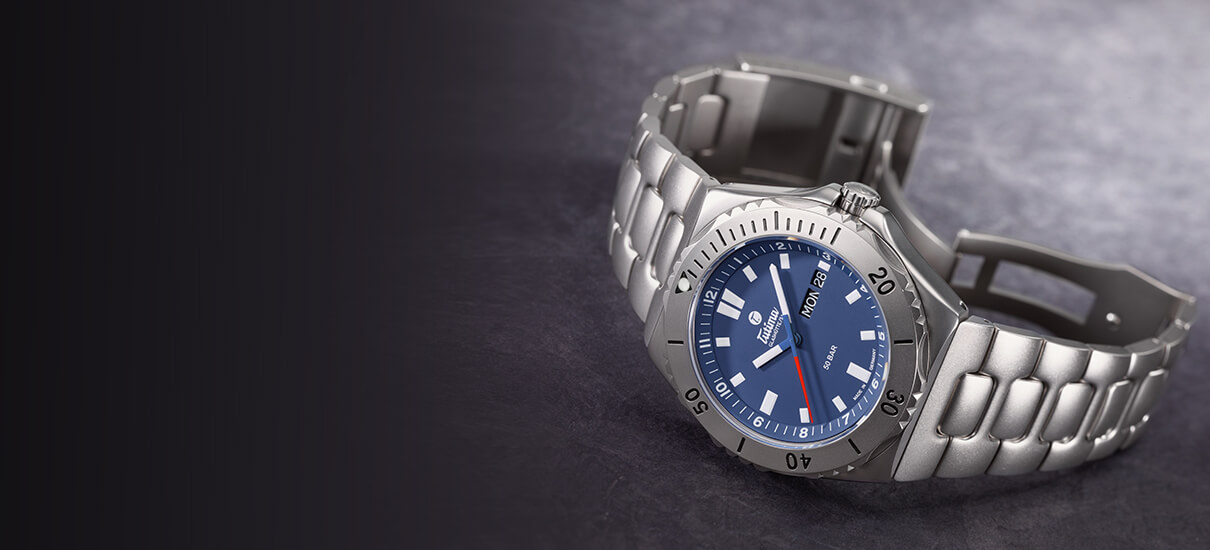

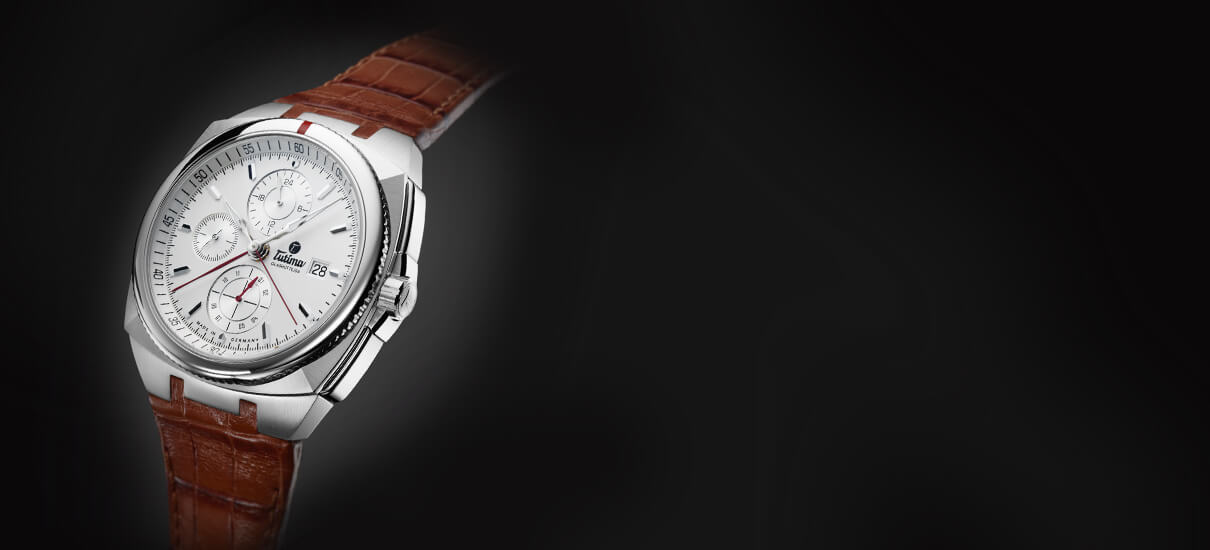

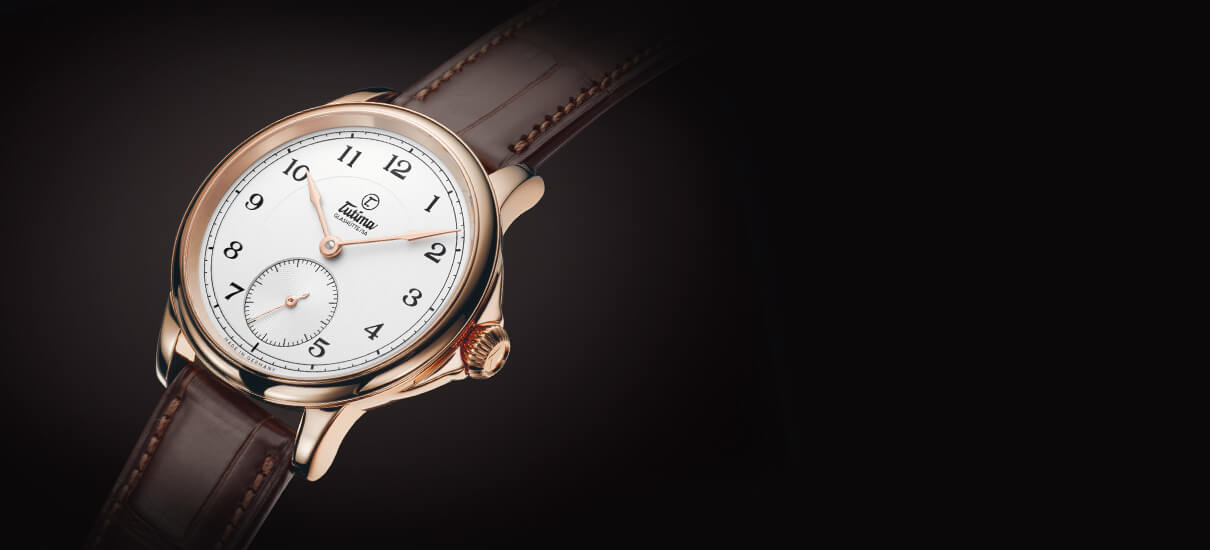

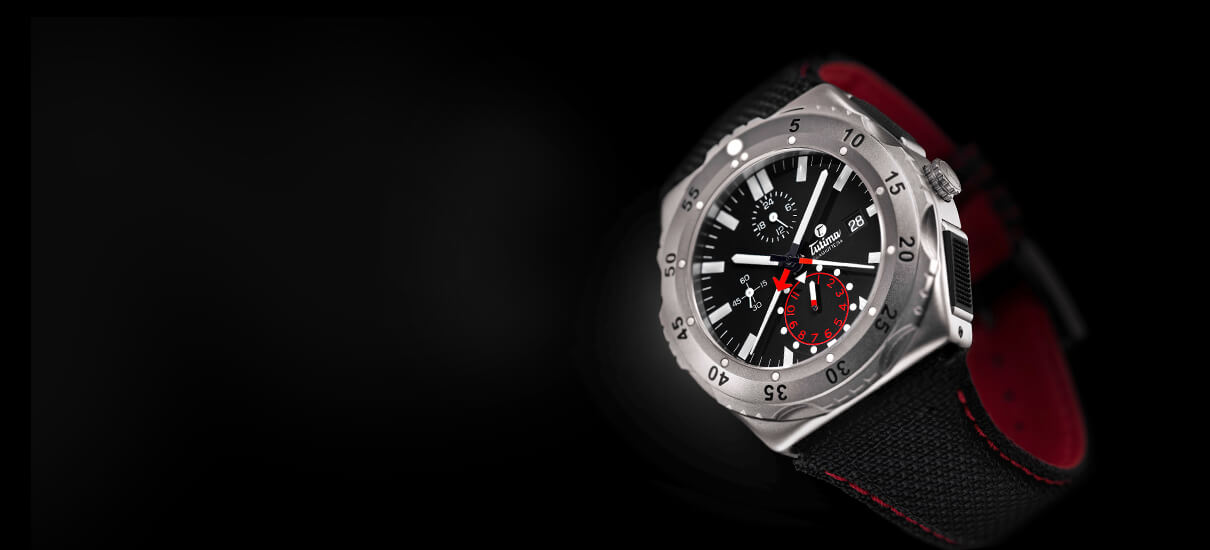

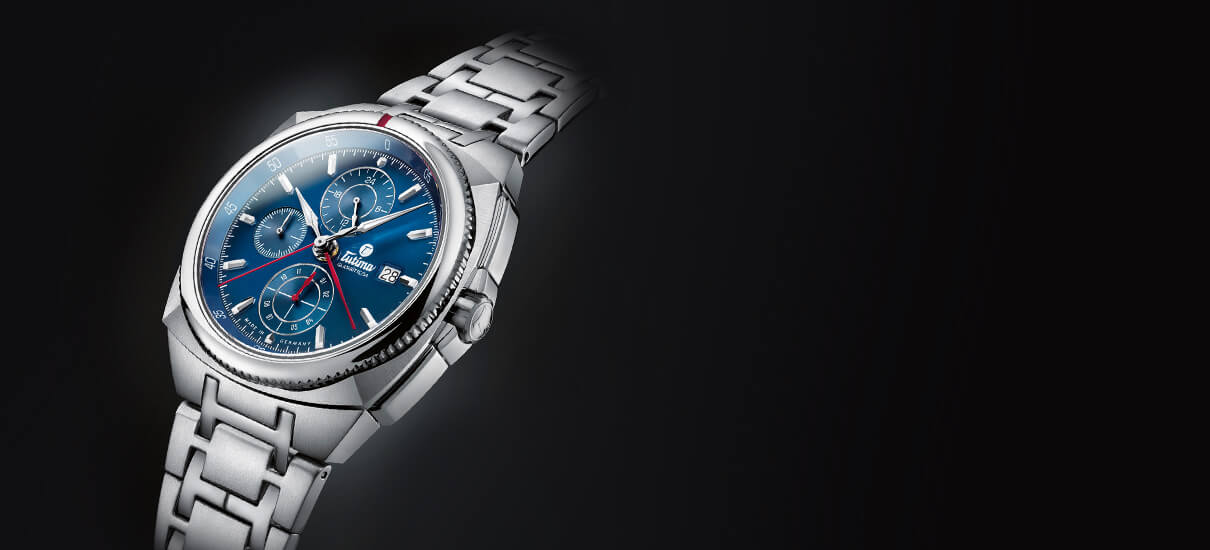

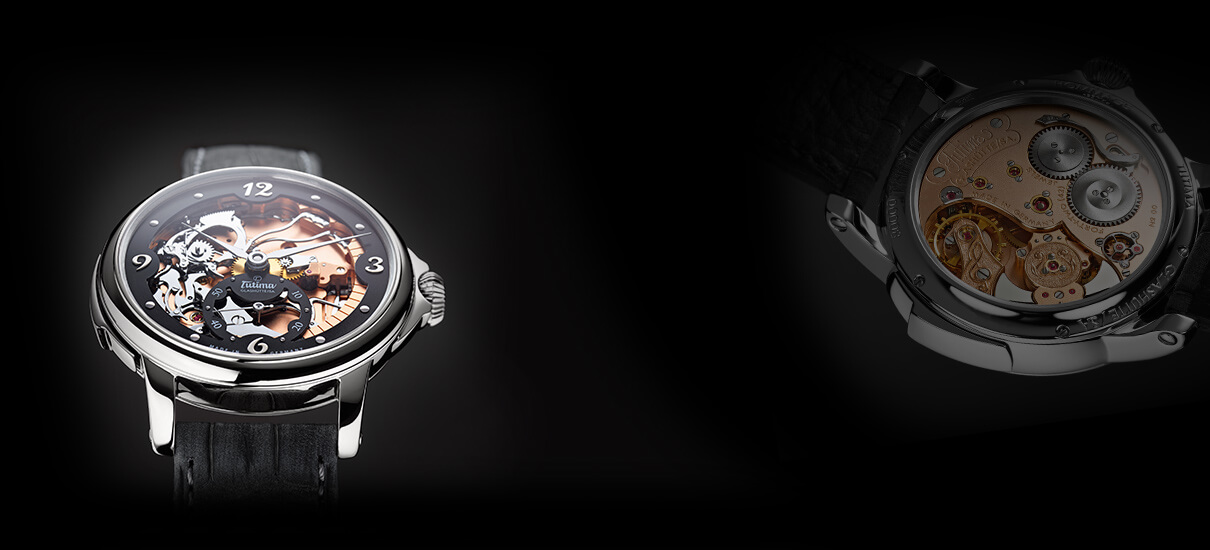



Leave a Reply
Want to join the discussion?Feel free to contribute!